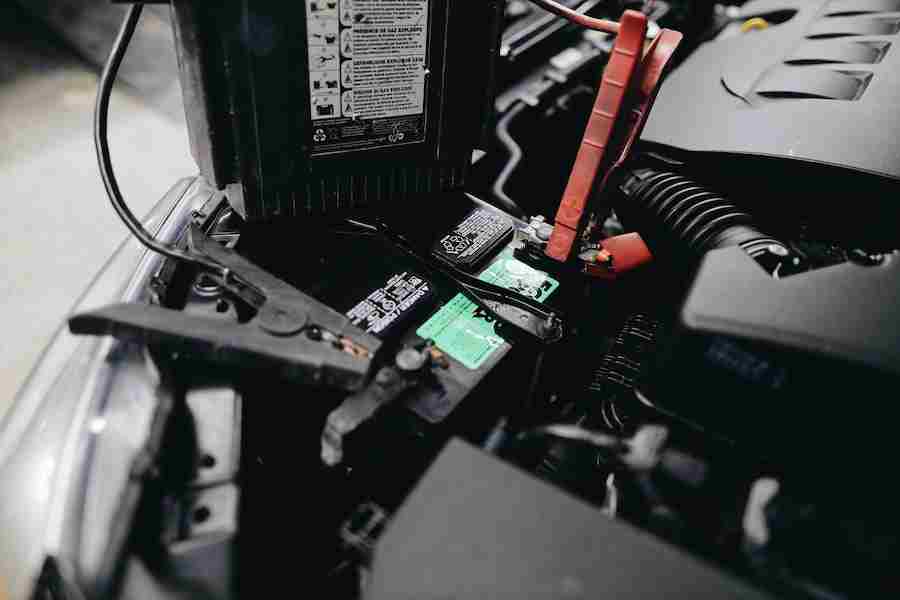
Regarding batteries, most people think about the kind you use in your car. However, other types of batteries are used for different purposes. One such type is the deep cycle battery. This battery is often used in boats, RVs, and golf carts. If you have one of these vehicles and need to replace the battery, it’s essential to know how to tell if a deep-cycle battery is bad. In this blog post, we will discuss the signs that indicate a deep-cycle battery needs to be replaced.
How To Tell If A Deep Cycle Battery Is Bad?
- If your battery shows a visible bulge in the center or has sustained any physical harm, it should be replaced immediately.
- If your battery is not holding a charge, even when recharged and connected to the vehicle, it may be harmful.
- If your battery has been in use for more than five years, it should be checked for signs of wear and tear or damage.
- Listen for clicking noises from the battery, indicating a short circuit.
- If you’re experiencing dim lights, slow starts, and/or a weak electrical system, this could be caused by a bad deep-cycle battery.
- Check the condition of your cables to make sure they are secure and working correctly.
- Conduct a voltage test on the battery to ensure it provides enough power.
- Test the specific gravity of your battery to determine its overall health.
- Examine the terminals for any signs of corrosion or damage, which can indicate a bad battery.
- Look for any leakage coming from your deep-cycle battery as an issue could cause this with it.
What Is A Deep-Cycle Battery?
A deep-cycle battery is a lead-acid battery that can be discharged and recharged multiple times. This battery is designed to provide continuous power over an extended period and is typically used in boats, RVs, golf carts, and other vehicles. They are also known for their ability to withstand more extreme temperatures than other types of batteries.
How To Properly Maintain Your Deep Cycle Battery?
- Ensure that the battery is stored in a well-ventilated area away from extreme temperatures and direct sunlight.
- Ensure all electrical connections are clean, tight, and secure.
- Regularly check the water level of the battery and top up as needed.
- For optimal performance, ensure the battery is fully charged before use.
- Avoid overcharging or deep discharging your deep cycle battery, as this can reduce its lifespan.
- Perform a monthly visual inspection of the battery for signs of wear and tear or damage.
- Make sure that your battery is not exposed to any corrosive materials, such as salt water or dirt.
- Ensure that your battery is always used for extended periods.
- Consider using a battery maintainer to keep your deep cycle battery in top condition.
- Have your battery professionally serviced and tested at least once a year by a qualified technician.
What Are Some Common Symptoms Of A Bad Deep-Cycle Battery?
- Difficulty starting or slow cranking.
- Dim lights, weak electrical system.
- The battery is not holding a charge even after recharging it.
- The visible bulge in the center of the battery case or any physical damage to the battery casing.
- Clicking noises coming from the battery could indicate a short circuit.
- Corrosion or damage to the terminals could indicate a bad battery.
- Excessive heat comes from the battery during charging or discharging cycles.
- Leakage from the battery, which is an internal issue, could cause it.
- A voltage test shows that the battery is not providing enough power.
- A specific gravity test shows that the battery is not in optimal condition.
Tips For Buying A New Deep Cycle Battery When The Old One Dies
- Purchase a battery with the same voltage and capacity as the old one.
- Read reviews of different batteries on the market to ensure you’re getting a good quality product.
- Consider purchasing a deep cycle battery specially designed for your specific application (boats, RVs, etc.).
- Make sure you understand the warranty and return policies of the supplier before making a purchase.
- Choose a battery that is properly sealed, as this will help to prevent leaks and explosions.
- Look for batteries with thicker plates, as this can increase the battery’s lifespan.
- Consider using an AGM (Absorbent Glass Mat) deep cycle battery, as they are more durable and require less maintenance than other types.
- Opt for a deep-cycle battery with adequate reserve capacity to ensure your vehicle will start even during colder weather or long periods without use.
- Ensure the battery is UL (Underwriters Laboratories) approved to guarantee its safety and quality standards.
- Always check the expiration date before buying a deep-cycle battery to ensure that it is fresh and has not been sitting on the shelf for too long.
Bottom Line
Proper maintenance of your deep-cycle battery can prolong its life and keep it running in top condition. Check the voltage, specific gravity, terminals, cables, and water level regularly to ensure your battery works correctly. Also, consider using a battery maintainer or purchasing an AGM deep-cycle battery for optimal performance. Finally, ensure you are buying a quality battery and always check the expiration date before making a purchase. With proper maintenance and care, your deep-cycle battery can provide years of reliable power.
FAQ’s
Q: How often should I replace my deep-cycle battery?
A: The lifespan of your deep-cycle battery will vary depending on the type of battery and how you maintain it. Generally, a properly maintained deep-cycle battery can last between three and five years. However, if your battery shows signs of wear and tear or decreased performance, consider having it professionally serviced or replaced as soon as possible.
Q: Can I use a regular car battery for a deep-cycle application?
A: No, regular car batteries are not designed to be discharged and recharged multiple times like deep-cycle batteries. If you’re looking for a battery to use in a deep-cycle application, purchase one specifically designed for that purpose.
Q: Is it safe to use a deep-cycle battery in an RV?
A: Deep-cycle batteries are commonly used in RVs and other recreational vehicles. However, before using a deep cycle battery, be sure to check the voltage requirements of your RV and select a battery that meets or exceeds those specifications.








